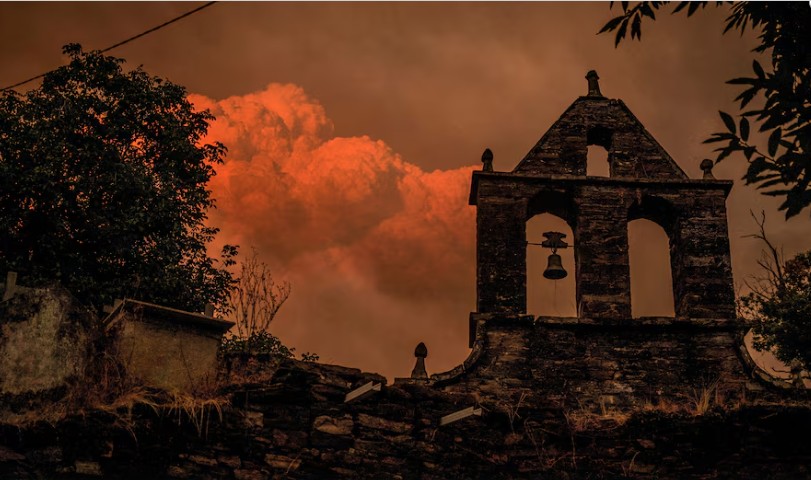Human-Caused Climate Change Made Spain’s Wildfires 40 Times More Likely, Study Finds

The record-breaking wildfires that scorched vast areas of Spain this summer were made 40 times more likely by climate change driven by human activity, according to a new report by the World Weather Attribution group.
The analysis, released on Thursday, finds that the combination of extreme heat, prolonged drought, and strong winds that fueled the fires would have been almost impossible without global warming. These fire-friendly weather conditions, once expected perhaps once every 500 years, can now be anticipated roughly every 15 years under the current climate, which is around 1.3 °C warmer than pre-industrial levels.
Researchers also found that the heatwaves which set the stage for the fires are now up to 190 times more likely, and that the intensity of those conditions particularly in southern Spain and Portugal was about 30% higher than it would have been in a cooler, pre-industrial climate.
This summer, fires burned through more than one million hectares across the European Union, with Spain and Portugal accounting for nearly two-thirds of the total area affected. Emergency services were stretched to their limits as flames forced thousands to evacuate homes and disrupted major roads, power supplies, and train lines. At least eight people were confirmed dead, with hundreds more treated for injuries or smoke inhalation.
The most destructive period coincided with a 16-day heatwave, the longest and hottest ever recorded in Iberia. Daily highs soared above 40 °C across large regions, pushing communities and infrastructure to the brink.
But the WWA’s researchers stressed that climate change is not acting alone. Land management policies, demographic shifts, and economic neglect have left much of rural Spain and Portugal overgrown and vulnerable. As younger populations move to cities, vast areas of forest and shrubland have been left untended effectively turning them into fuel reserves.
“This is not just a climate crisis, it’s a land-use crisis as well,” said Dr. Friederike Otto, a climate scientist with WWA. “Without intervention, these fires will only get worse, even in a world where we limit warming.”
Spanish officials have already pledged a more aggressive national approach to fire prevention. A new 10-point plan focuses on restoring traditional grazing, investing in early warning systems, and launching year round brush clearing efforts in high risk zones.
Still, scientists warn that adaptation can only go so far. Without deeper global cuts to greenhouse gas emissions, regions like southern Europe will continue to see worsening fire seasons, with lives, livelihoods, and ecosystems all increasingly at risk.
